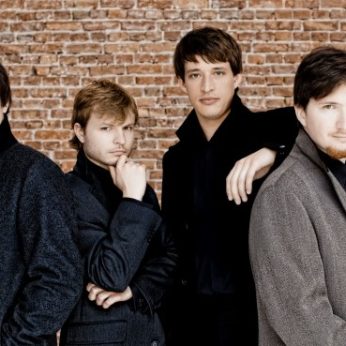Whatever happens, we have to make music, perform and give concerts; this is something no-one can deprive us of, and this is what keeps us alive, if not in the physical sense, then morally.
The violinist Pawel Kochanski, wrote these encouraging if idealistic words to Szymanowski on the loss of his home, his lands and his possessions in the revolutionary upheavals of 1917. As a result of this the composer had no permanent home until 1930 and was even obliged to let this go in 1936 due to his constrained circumstances.
Despite this Szymanowski is honoured as the father of the great flowering of Polish music in the twentieth century and is the first of five Polish composers we shall celebrate in this Festival. Warsaw at the turn of the century was, by European standards, an isolated and backward musical centre. In the inter-war period, Szymanowski made a Herculean effort to transform this situation and destroyed his health in the process. Nowadays there is a flourishing contemporary music scene in Poland, though, apart from the big names like Lutoslawski, Penderecki and Górecki, most of the composers remain unknown in the West.
Szymanowski had a passion for the exotic; his interests embraced the life and arts of cultures from the Tatra mountains to Persian love-songs and Greek mythology. Two-thirds of his works were settings of or reaction to literary texts; the quartets, however, can be called abstract works with no literary sub-text. The war saw his music move from a late-romantic style, as in the Violin Sonata, to a new colouristic approach to sound, strongly influenced by the music of Debussy, Stravinsky and Scriabin.
The First Quartet opens with an other-worldly slow introduction, which seems to appear from nowhere but clearly announces this will be no ordinary quartet. The first theme is melancholic and inward looking, whereas the second one is fervent and sensuous, leading to a movement full of conflicting emotions. The slow movement is marked Andante semplice – in modo d’una canzone and from the opening bar it resounds with a song-like lyricism full of exquisite colouring. During this period of extreme hardship, Szymanowski took refuge in writing a long novel as a solace and sweet remembrance of things past, in order to exorcise the black pit of an endless succession of days, weeks, months spent amidst the most atrocious external conditions by a magic vision of Italy. This slow movement has something of that atmosphere of a dream of a perfection that is far away and out of reach. The composer had planned a fugal finale in a four-movement structure, but he never wrote it. So the work concludes with the scherzo, a strange mixture of boisterous vitality and grotesque irony, curiously prophetic of Shostakovich.
